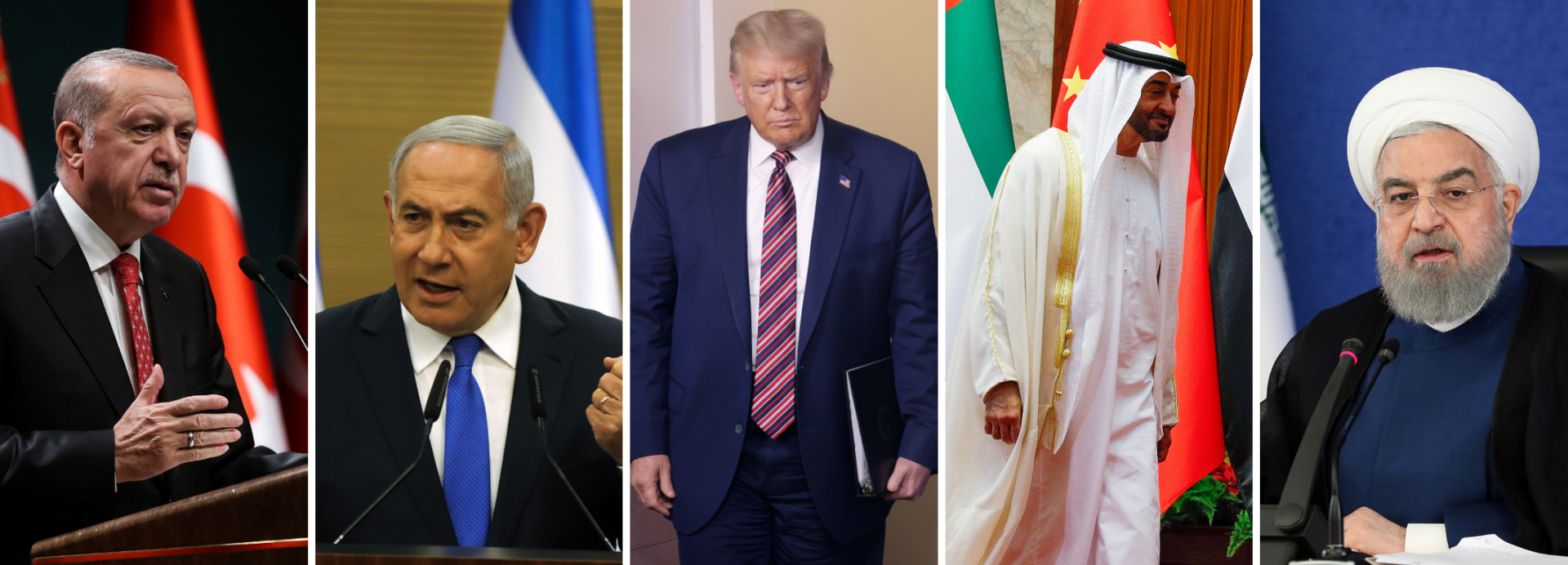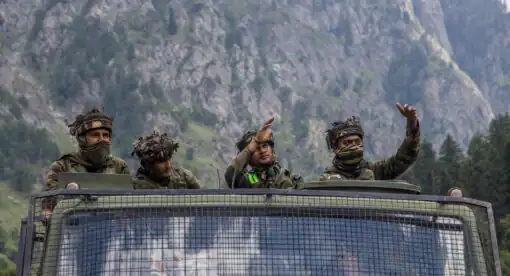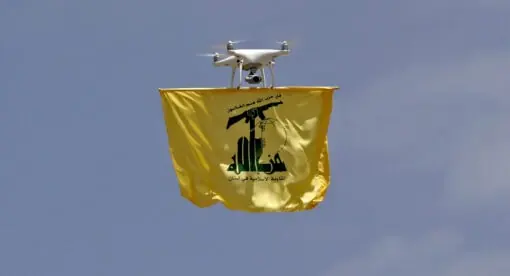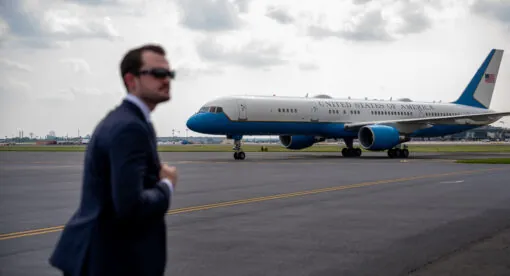The recent announcement that the United Arab Emirates was seeking to normalize relations with Israel sent shockwaves through the Arab world, particularly with regard to the Israeli-Palestinian conflict. But Abu Dhabi’s actions have much less to do with Israel specifically than they do with the UAE’s efforts to try and manage a precarious regional security vacuum, which require a delicate balancing act to stave off pressures from both Iran and Turkey.
The United Arab Emirates’ agreement with Israel isn’t the big deal that everyone is making it out to be, and it certainly has very little if anything to do with the Palestinian conflict. Abu Dhabi’s announcement that it will establish diplomatic ties with the Jewish state is a complex move driven by its own national security considerations and in response to the hollowing out of the Arab world.
The UAE-Israel deal is a relatively insignificant part of a much wider geopolitical puzzle. It has to do with Emirates’ efforts to assume charge of Arab diplomacy in order to manage regional security interests at a time of uncertain American intentions and when Turkey is pressing ahead with its efforts to become the hegemon in the Middle East. UAE’s actions complicate the U.S. strategy to counter Iran and manage Turkey’s growing footprint in the region.
The UAE’s Goals for Israel
The White House announcement on the UAE moving to recognize the state of Israel comes some two months after Yusuf al-Otaiba, the UAE’s ambassador to Washington, published an op-ed in a Hebrew-language Israeli daily and released an accompanying video in English calling on Israel not to go ahead with its West Bank annexation plans. At the time, I tweeted that Otaiba’s statements seemed more about potential UAE-Israel bilateral relations than Abu Dhabi trying to play mediator in the Israeli-Palestinian conflict. After all, the Emiratis are well aware that there isn’t much they can do to unfreeze this conflict, which has become deeply complicated – due both to intensifying intra-Palestinian rifts and to domestic Israeli politics. Now it’s all too clear that the Palestinian issue was just a way for the UAE to advance a much bigger initiative.
While this move is not about the Palestinians, it is also not about aligning with Israel to counter Iran, either. It is unlikely that the Israelis will expend their resources to protect the UAE or any other Gulf Arab state in a potential future conflict with Iran. Israel lacks the conventional military capability to project power that far out. More importantly, Israel is currently more concerned about its own strategic environment and is attempting to manage the growing Iranian footprint in Syria and Iraq via tactical strikes. Not only are the Emiratis well aware of this, they too have no desire for a conflict with Iran, given their country’s geographic location.
Regional Aspirations
Thus far, the UAE has enjoyed the U.S. security umbrella, but that umbrella is becoming increasingly unreliable as Washington has been moving away from heavy lifting vis-à-vis regional security needs. Abu Dhabi knows that the U.S. strategy for the Middle East increasingly relies on regional players to take the lead, and this is driving Emirati behavior.
Since the days of the Obama administration, Saudi Arabia has been making a series of unilateral foreign policy moves – enhancing its role as the leader of the Arab world, given its wealth and the fact that it was the only major Arab state unaffected by the autocratic meltdown sparked by the Arab Spring. However, Saudi Arabia is also a latecomer to regional leadership, and it has proven quite ineffective in the role under the Crown Prince (and soon-to-be monarch) Mohammad bin Salman. The UAE leadership, especially Crown Prince Mohammad bin Zayed, should know because they groomed bin Salman.
Put differently, the UAE has slowly been trying to fill this vacuum of Arab regional leadership, as is clear from its involvements in Syria, Yemen, Egypt, and Libya, among other places. It is executing a very complex regional calculus and has engaged in a rethink on a number of issues. For example, Abu Dhabi decided to disengage itself from backing the Syrian rebels and accept the Assad regime as a reality, at least for the foreseeable future. Likewise, it has opened strategic conversations with Iran – despite Washington’s policy of maximum pressure.
This would explain the foreign minister-level UAE-Iran meeting that took place just four days before the announcement of the UAE’s opening relations with Israel. There is no way that the Emiratis did not – at the very least – give the Iranians a heads-up of their moves vis-à-vis Israel.
It is very likely, in fact, that the UAE told Iran that its ties with Israel were actually in Tehran’s interest as Abu Dhabi could serve as a go-between the two adversaries and manage the standoff in the Levant. The UAE would also not want Oman to play this role, especially given Israeli Prime Minister Benjamin Netanyahu’s recent state visit to Muscat and the fact that the Omanis serve as the principal backchannel between the United States and Iran. These considerations are part of a bigger threat perception of the UAE and the Arab states, which is informed by Turkey’s aggressive push into the broader Middle East and North Africa region, especially given that rival Arab Gulf state Qatar is allied with the Turks.
In other words, the Emiratis are more worried about Turkey’s ingress into the Arab world than Iran’s. This makes sense given Iran’s identity as the ethno-sectarian “other,” which imposes natural limits on how far the Iranians can go in terms of inroads in the Arab world. Besides, Iran is contained given the toll that sanctions are taking, not just on Iran’s external power projection capabilities but also on its domestic political and economic stability. Tehran does have a deep footprint on its western flank extending to the Eastern Mediterranean, but not much can be done about it.
Turkey is also challenging Iran, albeit in a subtle way, and herein lies the problem for the UAE and the Arab sides: They do not want to contain Iran at the cost of empowering Turkey. That is a huge price to pay, given that the Turks are on the Arab side of the geosectarian struggle in the region. Ankara is also appealing to the broader Muslim sensibilities of Arab masses, which it is leveraging through the use of soft-power tactics.
What is more alarming from the UAE point of view is Turkish backing for Islamist forces, particularly those affiliated with the Muslim Brotherhood. These are principal partners of the Turks and proxies of the Qataris. Muslim Brotherhood-style Islamists are the only organized group that has come close to forming governments in the aftermath of the Arab spring, which UAE, Saudi Arabia and Egypt have struggled to contain.
A Balancing Act
Therefore, the UAE strategy is to use Iran and Israel to counter Turkish inroads into the Arab world. One key aspect of this is to have a working relationship with Tehran and make sure that the Turks are not able to punch through the Iranians blocking them in Syria and Iraq. The other leg of this strategy is to ensure that Turkey, which has decades-old diplomatic relations with Israel, does not reach an understanding with the Jewish state that has an interest in partnering with the Turks to counter Iran putting down roots on its northern frontier. Thus, UAE is seeking to balance between Iran and Israel as a way to prevent the Turks from a deep ingression into Arab lands.
This is a very ambitious strategy that is akin to juggling too many balls at a time, but it is the best UAE can hope to do given that it is punching well above its weight in this game of major-league geopolitics. What this means is that the UAE has to simultaneously manage way too many players with their own unique sets of expectations. In situations like these, a lot can go wrong, and therefore this strategy is untenable in the long run where Turkey and Iran can be expected to be competing for influence in the Arab world and UAE and other similar Arab actors will have a secondary role.
The next U.S. administration will need to find a way to balance its need to work with Turkey to counter Iran with the security concerns of the Arab states; otherwise, moves like the ones UAE is engaged in threaten to undermine U.S. strategy for regional players to take the lead in managing security in the Middle East.
Dr. Kamran Bokhari is the Director of Analytical Development at the Newlines Institute. Dr. Bokhari is also a national security and foreign policy specialist at the University of Ottawa’s Professional Development Institute. Bokhari has served as the coordinator for Central Asia Studies at the State Department’s Foreign Service Institute (FSI) in 2019. Follow him on Twitter at @KamranBokhari.
The views expressed in this article are those of the author and not an official policy or position of the Newlines Institute.







